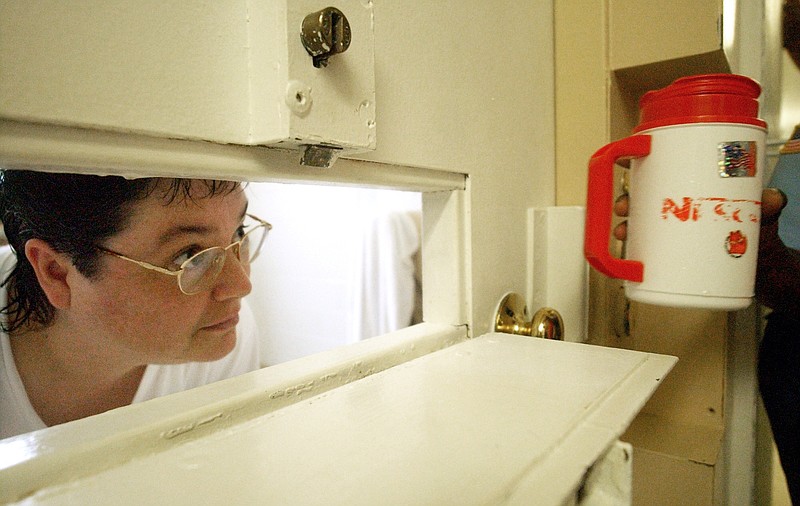ATLANTA -- A federal judge on Monday dismissed a lawsuit filed by lawyers for a Georgia death row inmate that claimed the state violated their client's constitutional rights by subjecting her to cruel and unusual punishment.
Kelly Gissendaner was scheduled for execution at 7 p.m. March 2. Corrections officials told reporters about 11 p.m. that night that they were postponing the execution "out of an abundance of caution" because the lethal injection drug appeared "cloudy." Corrections officials the next day announced a temporary suspension of executions until they could analyze the drug.
Gissendaner's lawyers filed a complaint a week later saying she had suffered 13 hours of anxiety before that announcement, not knowing whether the state would proceed with her execution and what drugs it might use. Her lawyers also argued that the problem with the lethal injection drug means she could be subject to cruel and unusual punishment when her execution date is rescheduled.
U.S. District Judge Thomas Thrash dismissed the complaint, saying Gissendaner had failed to demonstrate the violation of her Eighth Amendment rights, which protect against cruel and unusual punishment.
Lawyers for Gissendaner and the state did not immediately respond to after-hours requests for comment Monday.
The period of uncertainty between the cancellation of her execution and the announcement that the state would not pursue her execution before the court-ordered window had ended did not constitute cruel and unusual punishment because there's no evidence state officials intended to inflict pain, Thrash wrote.
The fact that the state could again obtain problematic injection drugs is not sufficient to prove an Eighth Amendment violation, Thrash wrote, adding that she would need to show a substantial risk that defective drugs would be used on her.
"If anything, the March 2 incident shows that the State is unlikely to use defective drugs," Thrash wrote.
Gissendaner's lawyers had also argued that the secrecy shrouding executions in Georgia keeps her from accessing information that could help her prove that the execution method would violate her constitutional rights. A 2013 Georgia law prohibits the release of any identifying information about the source of execution drugs or any entity involved in an execution, classifying that information as a "confidential state secret."
Although "it may be true that (the state)'s secrecy is the reason (Gissendaner) cannot utilize the March 2 incident to establish an Eighth Amendment claim," Thrash wrote, "this allegation of secrecy does not relieve her of the burden of coming forward with facts that are sufficient to state a probable claim for relief."
Gissendaner is the only woman on Georgia's death row, and it has been seven decades since the state last executed a woman. She was convicted of murder in the February 1997 slaying of her husband, Douglas Gissendaner. Prosecutors said she conspired with her lover, Gregory Owen, who stabbed Douglas Gissendaner to death. Owen is serving a life prison sentence and is eligible for parole in eight years.
No new execution date has been set for Gissendaner or any other inmate since the state announced the temporary suspension of executions. A Department of Corrections spokeswoman did not immediately respond to an after-hours email Monday asking whether the state is prepared to resume executions.
Corrections officials in April released a sworn statement from a pharmaceutical expert saying the most likely cause of the appearance of solid chunks in the lethal injection drug intended for Gissendaner's execution was that it was shipped and stored at a temperature that was too low. But in a court filing in June, the state revealed that a separate test done by the Department of Corrections showed that storage at a cold temperature had no effect on a new sample of the drug made by the same pharmacist.
